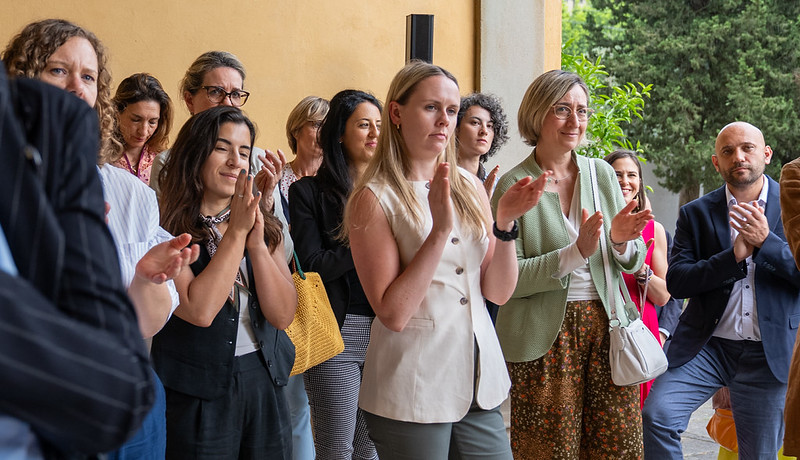Data sharing as an avenue for more sustainability

The paper ”Data sharing as an avenue for more sustainability ” (Tombal, T.J.) will be presented at the 11th FSR Annual Conference “From Data Spaces to Data Governance” (9-10 June, 2022).
Abstract:
As outlined in the European Commission’s Strategy for data, “making more data available and improving the way in which data is used is essential for tackling societal, climate and environment-related challenges, contributing to healthier, more prosperous and more sustainable societies” (European Commission, 2020a).
Sharing public and private sector data can thus significantly contribute to the realisation of several societal objectives. Interestingly, this societal rationale for data sharing seems to receive a large adherence from all categories of actors, as 91.5% of the respondents to the Commission’s public consultation on its Strategy for data agreed that more data that are useful for the common good should be made accessible (European Commission, 2020b).
In contrast, a lack of data sharing will not only create economic challenges, but also societal challenges (Shkabatur, 2019). Accordingly, as the societal value of data held (exclusively) by some actors could be enormous, allowing (some) third parties to use this data could generate immense societal benefits.
In light of the above, the aim of this paper will be two-fold. On the one hand, it will outline and analyse the European initiatives supporting data sharing for societal purposes, with a focus on data sharing for sustainability purposes. These mostly relate to business-to-government (B2G) data sharing, and they can be voluntary or compulsory.
On the other hand, this paper will show that, while some initiatives pertaining to B2G data sharing for sustainability purposes are being proposed, the same cannot be said about initiatives imposing business-to-business (B2B) data sharing for sustainability purposes. In this regard, this paper will aim at developing some prospective reflections on why imposing B2B data sharing for sustainability purposes might also make sense, and on how such legislations could be constructed in the future, in the hope to spur further discussions on this topic.
Research Design and Expected Results:
This paper will be divided in three sections. Section 1 will set the frame for the remainder of the paper, by providing several examples of sustainability benefits that could derive from data sharing, in order to justify why such initiatives would make sense.
Section 2 will be dedicated to the identification of the existing European initiatives supporting data sharing for sustainability purposes. As outlined above, these mostly relate to B2G data sharing and they can be voluntary or compulsory. Indeed, on the one hand, this paper will demonstrate that the creation of a Common European Green Deal data space, combined with the “data altruism” provisions of the Data Governance Act, will create a framework for voluntary B2G data sharing for sustainability purposes. On the other hand, it will outline that the future Data Act will likely go a step further by making B2G data sharing for sustainability purposes compulsory in certain circumstances. It is expected that this could arguably lead to overlaps between these initiatives, which might create legal insecurity.
Section 3 will aim at developing some prospective reflections on why imposing B2B data sharing for sustainability purposes might also make sense. In this regard, it will be argued that the requirements of necessity and proportionality entail that such data sharing should only be imposed if less stringent alternatives, such as voluntary data sharing for sustainability purposes, turn out to be insufficient to achieve the desired objectives, or if it is highly important and/or urgent to achieve these objectives. The paper will also provide recommendations on how such legislations could be constructed in the future, notably regarding the determination of the parties that would have to share data, of the parties that could receive it, of the types of data concerned, and of whether this should be remunerated.
Don’t miss any update on this topic
Sign up for free and access the latest publications and insights














